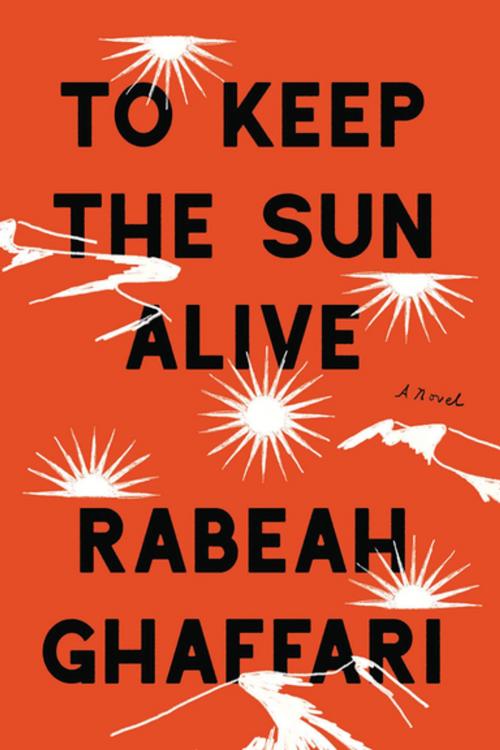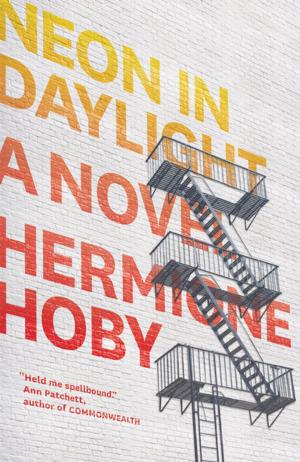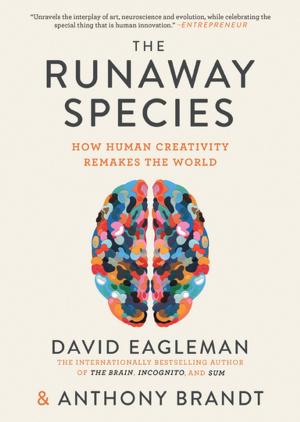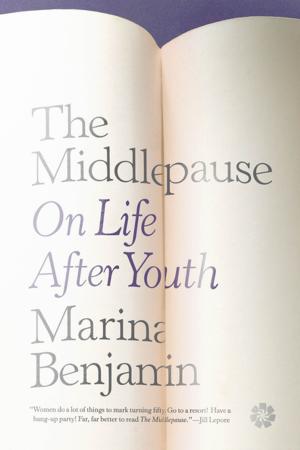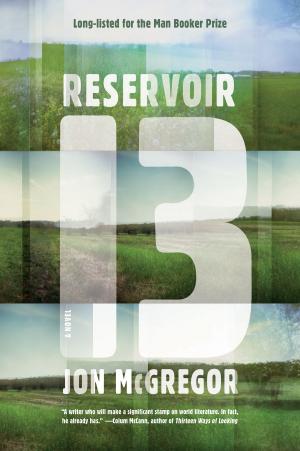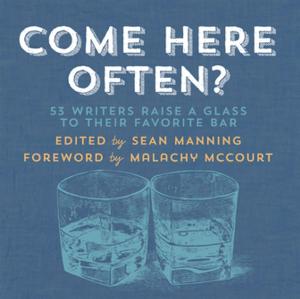| Author: | Rabeah Ghaffari | ISBN: | 9781948226103 |
| Publisher: | Catapult | Publication: | January 8, 2019 |
| Imprint: | Catapult | Language: | English |
| Author: | Rabeah Ghaffari |
| ISBN: | 9781948226103 |
| Publisher: | Catapult |
| Publication: | January 8, 2019 |
| Imprint: | Catapult |
| Language: | English |
Paris, present day: a solar eclipse sweeps a seventy-five-year-old man back to the heart of Iran before the Revolution of 1979, immersing us in an unforgettable family saga with humor and history
To Keep the Sun Alive brings a large extended family fully to life in this mesmerizing story that recalls Jhumpa Lahiri’s The Lowland, Dinaw Mengestu’s The Beautiful Things That Heaven Bears, and Rohinton Mistry's beloved body of work; it's a heartfelt and character-driven family drama that compels the reader to care deeply about the interwoven stories of the family
Ghaffari grew up in New York City and works in film and theater; this cinematic debut novel started as a screenplay before evolving into To Keep the Sun Alive
To Keep the Sun Alive introduces a story not often told to U.S. readers: a family in Iran—vivid, lovable, and fully formed—without pandering or hand-holding; readers are eager to discover new voices and experiences, like Mohsin Hamid’s Exit West
In a time of increased tension worldwide, this book is a timely reminder of the humanity of people caught in areas of political strife
The depth of detail in the writing and the immediacy and sensual experience of detail in To Keep the Sun Alive make for an extremely enjoyable read that fully places the reader in each scene, whether it be a chaotic (but mouthwatering) family lunch or an languorous afternoon in a sunny orchard
In real life, Rabeah Ghaffari’s family moved to the U.S. in 1979, just before the revolution; she was inspired to write the novel when she visited all that was left of her grandmother’s orchard is Naishapur: a small piece of adobe wall
She is a film editor and writer whose work has appeared in the Tribeca Film Festival. Her collaborative fiction with artist Shirin Neshat was featured in Reflections on Islamic Art (Bloomsbury/Qatar) and her documentary, The Troupe, featured Tony Kushner and received funding from the Ford Foundation and Lincoln Center. Her most recent feature-length screenplay, The Inheritors, was commissioned by producer/costume designer Patricia Field
Opportunities for events in art and film spaces, intersecting with the author's broad artistic community
Ghaffari’s father is well-known actor and director Mohammad Ghaffari, who will connect the author in circles beyond the literary world; Ghaffari’s connections in the film world have already led to a galley request from Sundance Productions (owned by Robert Redford)
Bookseller Praise for To Keep the Sun Alive
"I was completely swept away by this family epic set on the eve of the Iranian Revolution in an Edenic orchard in the small town of Naishapur. Ghaffari writes with such grace. To Keep the Sun Alive is a warm, heartful, deeply compassionate novel about people, the choices they make (or are made for them), and the stories that spring from the collision of the two." —Molly Moore, BookPeople (Austin, TX)
"Rabeah Ghaffari has written the perfect novel, a story of entwined sweetness and violence that hums with life. With this book, she thoughtfully explores issues of tradition, community, and identity amidst the growing tension and unease of the impending Islamic Revolution. But what moved me most (besides the mouthwatering descriptions of family meals) were her insights into each character's secret pain. I sympathized with even the most wretched, just as I dreaded the consequences of their actions. To Keep the Sun Alive is written with such wisdom, grace, and clarity, it's hard to believe it's a debut—hopefully the first book of many from this remarkable author!" —Lauren Peugh, bookseller, Powell's Books (Portland, OR)
"A character-driven portrait of the Iranian Revolution. I was especially drawn to the depiction of Iranian food and dining culture as a way of illustrating this tumultuous period." —Lesley Rains, City of Asylum Bookstore (Pittsburgh, PA)
“Set during the Iranian Revolution, To Keep the Sun Alive is a beautifully written family epic that will completely wrap you up. It’s a sweeping novel about identity and tradition, and it's full of characters you won't soon forget. Ghaffari masterfully blends the historical with the imagined, and her writing is wise and precise. It's an excellent novel!” —Sarah Cassavant, Subtext Books (St. Paul, MN)
"Casting us back to a turning point in Iranian history, To Keep the Sun Alive beautifully renders a world of contrasts. When Bibi’s family gathers for lunch, there are many world views both around the table and hidden from view. Acceptance and fundamentalism, romance and tradition, love and violence are all present, daring her to try to keep the peace among such passionate advocates. Bibi’s husband is the voice of moderation, while his brother is a fundamentalist mullah, and the weight of their choices has devastating repercussions. Rabeah Ghaffari’s impressive debut will leave you reeling. For as more is revealed, and the deadly conflict finally arrives, the impact of what was lost during the revolution becomes palpable." —Luisa Smith, Book Passage (San Francisco, CA)
Paris, present day: a solar eclipse sweeps a seventy-five-year-old man back to the heart of Iran before the Revolution of 1979, immersing us in an unforgettable family saga with humor and history
To Keep the Sun Alive brings a large extended family fully to life in this mesmerizing story that recalls Jhumpa Lahiri’s The Lowland, Dinaw Mengestu’s The Beautiful Things That Heaven Bears, and Rohinton Mistry's beloved body of work; it's a heartfelt and character-driven family drama that compels the reader to care deeply about the interwoven stories of the family
Ghaffari grew up in New York City and works in film and theater; this cinematic debut novel started as a screenplay before evolving into To Keep the Sun Alive
To Keep the Sun Alive introduces a story not often told to U.S. readers: a family in Iran—vivid, lovable, and fully formed—without pandering or hand-holding; readers are eager to discover new voices and experiences, like Mohsin Hamid’s Exit West
In a time of increased tension worldwide, this book is a timely reminder of the humanity of people caught in areas of political strife
The depth of detail in the writing and the immediacy and sensual experience of detail in To Keep the Sun Alive make for an extremely enjoyable read that fully places the reader in each scene, whether it be a chaotic (but mouthwatering) family lunch or an languorous afternoon in a sunny orchard
In real life, Rabeah Ghaffari’s family moved to the U.S. in 1979, just before the revolution; she was inspired to write the novel when she visited all that was left of her grandmother’s orchard is Naishapur: a small piece of adobe wall
She is a film editor and writer whose work has appeared in the Tribeca Film Festival. Her collaborative fiction with artist Shirin Neshat was featured in Reflections on Islamic Art (Bloomsbury/Qatar) and her documentary, The Troupe, featured Tony Kushner and received funding from the Ford Foundation and Lincoln Center. Her most recent feature-length screenplay, The Inheritors, was commissioned by producer/costume designer Patricia Field
Opportunities for events in art and film spaces, intersecting with the author's broad artistic community
Ghaffari’s father is well-known actor and director Mohammad Ghaffari, who will connect the author in circles beyond the literary world; Ghaffari’s connections in the film world have already led to a galley request from Sundance Productions (owned by Robert Redford)
Bookseller Praise for To Keep the Sun Alive
"I was completely swept away by this family epic set on the eve of the Iranian Revolution in an Edenic orchard in the small town of Naishapur. Ghaffari writes with such grace. To Keep the Sun Alive is a warm, heartful, deeply compassionate novel about people, the choices they make (or are made for them), and the stories that spring from the collision of the two." —Molly Moore, BookPeople (Austin, TX)
"Rabeah Ghaffari has written the perfect novel, a story of entwined sweetness and violence that hums with life. With this book, she thoughtfully explores issues of tradition, community, and identity amidst the growing tension and unease of the impending Islamic Revolution. But what moved me most (besides the mouthwatering descriptions of family meals) were her insights into each character's secret pain. I sympathized with even the most wretched, just as I dreaded the consequences of their actions. To Keep the Sun Alive is written with such wisdom, grace, and clarity, it's hard to believe it's a debut—hopefully the first book of many from this remarkable author!" —Lauren Peugh, bookseller, Powell's Books (Portland, OR)
"A character-driven portrait of the Iranian Revolution. I was especially drawn to the depiction of Iranian food and dining culture as a way of illustrating this tumultuous period." —Lesley Rains, City of Asylum Bookstore (Pittsburgh, PA)
“Set during the Iranian Revolution, To Keep the Sun Alive is a beautifully written family epic that will completely wrap you up. It’s a sweeping novel about identity and tradition, and it's full of characters you won't soon forget. Ghaffari masterfully blends the historical with the imagined, and her writing is wise and precise. It's an excellent novel!” —Sarah Cassavant, Subtext Books (St. Paul, MN)
"Casting us back to a turning point in Iranian history, To Keep the Sun Alive beautifully renders a world of contrasts. When Bibi’s family gathers for lunch, there are many world views both around the table and hidden from view. Acceptance and fundamentalism, romance and tradition, love and violence are all present, daring her to try to keep the peace among such passionate advocates. Bibi’s husband is the voice of moderation, while his brother is a fundamentalist mullah, and the weight of their choices has devastating repercussions. Rabeah Ghaffari’s impressive debut will leave you reeling. For as more is revealed, and the deadly conflict finally arrives, the impact of what was lost during the revolution becomes palpable." —Luisa Smith, Book Passage (San Francisco, CA)
